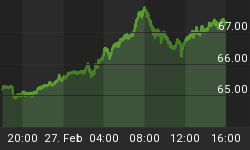Government stimulus during economic contractions is intended to offset the decline in private spending that occurs during downturns. Government stimulus directly increases GDP while it indirectly boosts consumer and business confidence. As confidence increases, the economy stabilizes as would-be layoffs are postponed while inventory depletion turns to replenishment.
Debt-fueled government spending is a cost that the Government, for years, has been willing to burden future taxpayers with in exchange for less severe economic downturns. However, now that sovereign debt problems have come to the forefront, governments have lost the ability to boost short-term economic activity with deficit spending. Instead, fears over government spending are having a detrimental impact on an already fragile economic environment as evidenced by comments made by Jeffrey Immelt, the CEO of General Electric, during a speech given May 24, 2010 at the Boston College graduation ceremony: ¹
We are at an unprecedented moment in the history of our country. There is economic and social anxiety. There are plenty of problems.
We have ended the worst financial crisis since 1940 and unemployment is 10%. Trillions have been lost in asset and housing prices. Our competitiveness is challenged. The US does not rank in the Top 20 for high school education. We have a massive trade deficit. The Chinese are funding our debt. Europe appears to be "teetering" on the brink of a financial disaster. Healthcare costs are about 20% of the US GDP, with an aging population that threatens to overwhelm us.
Our leadership is challenged. The popularity of politicians and business leaders is at an all time low. People don't like the government, big business or any institution.
Similarly, the country will be better coming out of the financial crisis if we learn a few lessons: that real, honest, ethical leadership matters; that the U.S. cannot prosper today as just a service economy. We need to roll up our sleeves again to innovate and build things; that we have to compete to be great; that business and government must work together to solve the toughest challenges.
So, look, it's a mess out there. There are some real problems that need to be fixed. I could really "bum you out" if I wanted to. Believe me, this speech may be boring to you, but it is the high point of my day! This afternoon, while you go off to party with your family, I am going back to work.
Immelt's candor during the speech should not be taken lightly. He understands the severity of the problems that this country faces both socially and fiscally despite the continuous efforts of government officials to convince businessman, consumers and market participants that a recovery is afoot. Immelt's views are likely shared in most corporate board rooms around the world. Accordingly, restrained hiring and corporate spending will make the hand-off of the economic recovery from the public sector to the private sector nearly impossible.
The only way for the economy to grow in a sustainable manner is by producing and saving. The US is doing little of either. Instead, the government runs continuous deficits, despite an overwhelming debt burden, to enable spending and consumption. Although the fixed income market continues to make credit available to the US government at interest rates which suggest that deficits and total debt to GDP are immaterial, such an environment will not persist indefinitely. Markets are already questioning the balance sheets of many European governments, making borrowing more costly and forcing governments to cut spending. Wary of government imbalances, companies and consumers are acting more conservatively now than they did during almost any modern era recovery. Should economies slow or recede once again, government spending may accelerate, rather than stall, the negative forces impacting the economy.
¹ Speech can be found at: http://www.bc.edu/bc_org/rvp/pubaf/10/Immelt_BCCommencement2010.pdf















